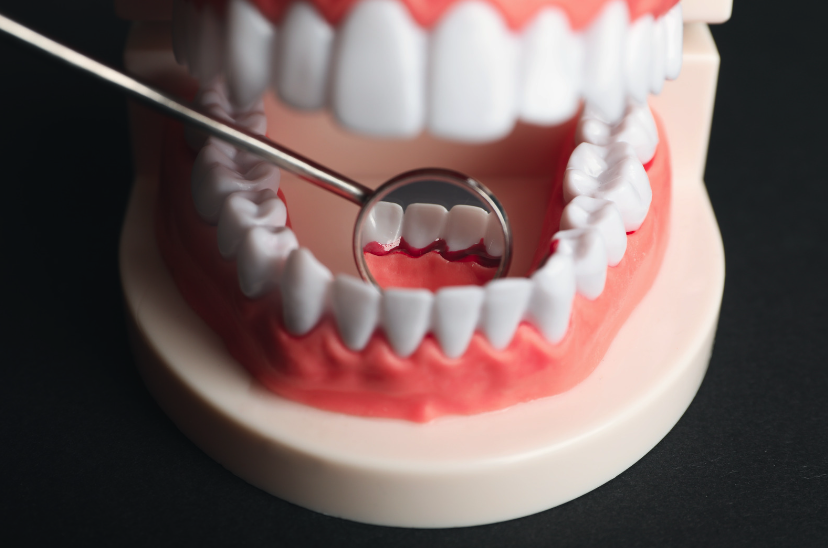
Are you seeing red in the sink when you finish flossing or brushing? This is an indicator of bleeding gums. Bleeding gums are not normal and may be a sign of gum disease or other health issues. Regular, gentle brushing and flossing help prevent bleeding gums by removing bacteria and preventing plaque buildup on your teeth. However, there may be several reasons for bleeding gums, from the main reason—gum disease—to hormonal changes, such as pregnancy or menopause.
If you experience bleeding gums for more than a couple of weeks, you should address the issue with your dentist. Keep reading to learn more about the reasons for bleeding gums and how you can prevent it.
Gum Disease or Infection
Not to alarm you, but bleeding gums are often associated with gum disease, which is also known as periodontal disease or gingivitis. It may also be a sign of infection or inflammation. If your gums have been bleeding, the dentists at Uptown Dental can provide a thorough gum disease evaluation. To determine the best treatment approach, they will examine your teeth for plaque and tartar buildup and signs of infection. Dr. Lenz and Dr. Mueller are here to help you keep your smile intact, so ask them any questions you have about gum disease.
Improper Brushing and Flossing
Sometimes, brushing or flossing too hard will cause gums to bleed. Keep in mind that the way you brush and floss is as important as the regularity of flossing and brushing in preventing bleeding gums. If you are overly aggressive or use a toothbrush that is too stiff, you can cause abrasions that damage gum tissue. We recommend softer toothbrushes and waxed dental floss that will glide between teeth. Some mouthwashes may also help keep bacteria and plaque from building up.
How to Floss and Brush Your Teeth
If you are not flossing or brushing regularly, start today! It’s never too late to take control of your dental health. You may be surprised at the positive effect of adding daily flossing to your routine, as it can clear plaque and other gunk out from between your teeth, which may cause your gums to be swollen and prone to bleeding. Flossing also stimulates the gum tissue, which has a healthful effect on your gums. Be gentle and try different methods of flossing to see what works best for you and your lifestyle.
Hormonal Changes
Few people are aware that hormonal changes can lead to changes in the mouth that can lead to bleeding gums. Pregnancy, menopause, and other hormonal shifts in women can result in gum recession and inflammation. Dry mouth can also arise from hormone changes, and that can lead to plaque, bad breath, and discomfort. If you are pregnant, be sure to address any issues with bleeding gums or dry mouth with your dentist.
 Learn more about women’s hormones and oral health.
Learn more about women’s hormones and oral health.
Other Causes of Bleeding Gums
Gums can also bleed due to some medications or because of other diseases, such as diabetes, leukemia, vitamin deficiencies, and other disorders. Smoking and other tobacco use can also have a negative effect on your gums.
Diabetes is particularly connected to oral health due to its effect on the body’s ability to fight infection. Individuals with diabetes are prone to gum disease and dry mouth, both of which can contribute to oral health issues. By controlling diabetes and regular brushing and flossing, those with diabetes can better control their oral health.
Learn more about diabetes and your teeth.
While they are usually related to gum disease, bleeding gums could be a symptom of a bigger problem. Make an appointment with Uptown Dental if you experience bleeding gums longer than 14 days. We can help you enhance your oral health for better overall health — and a more beautiful smile!


